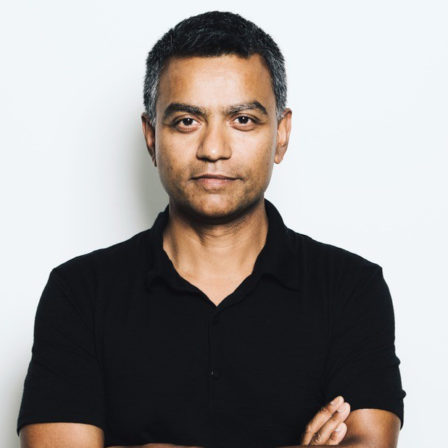Professor Deb Roy
Director & Principal Investigator
Deb Roy is professor of Media Arts and Sciences at MIT where he directs the MIT Center for Constructive Communication (CCC). He leads research in designing human-AI systems that foster dialogue, listening, and deliberation in ways that build civic muscle. Roy is also co-founder and unpaid CEO of Cortico, a closely affiliated nonprofit collaborator of CCC that develops, operates and supports a conversation platform designed to surface underheard voices and perspectives and create scalable dialogue networks.
Roy serves on the board of the Knight First Amendment Institute, the FRONTLINE advisory council, and is a faculty associate at the Berkman Klein Center for Internet & Society at Harvard University.
Previously, Roy was a visiting professor at Harvard Law School (2021-22), and served as executive director of the MIT Media Lab (2019-2021), where CCC is based. He has served on the Knight Commission on Trust, Media, and Democracy and the Aspen Institute’s Commission on Information Disorder.
While on leave from MIT, Roy co-founded and was CEO of Bluefin Labs, a media analytics company that analyzed the interactions between television and social media at scale. Bluefin was acquired by Twitter in 2013, Twitter’s largest acquisition to date. From 2013-2017 Roy served as Twitter’s chief media scientist.
Roy is the author of over 185 academic papers including a study of the spread of false news that was the cover story of Science magazine in 2018 and cited as one of the most influential academic publications of the year. His 2023 essay in The Atlantic describes his journey from studying social media to creating dialogue networks, and his 2024 Atlantic essay explores ways to tackle truth decay. Roy’s widely viewed TED talk Birth of a Word presents his pioneering research on his son’s language development that led to new ideas in media analytics.
A native of Canada, Deb was born and raised in Winnipeg and spent large parts of his childhood in Calcutta. He received his Bachelor of Applied Science from the University of Waterloo and PhD in Media Arts and Sciences from MIT.
The nine selected articles below, listed in chronological order, represent the evolution of Deb Roy’s most widely read publications over the past decade.
“How Digital Transparency Became a Force of Nature”
Scientific American, 2015 (with Daniel Dennett)
Explores how digital transparency is disrupting traditional structures of trust and authority, as once-private actions become exposed to public scrutiny and institutional norms struggle to keep pace.
“Journalists and Trump Voters Live in Separate Online Bubbles”
Vice News, 2016
Reveals the deep divides in the social networks of journalists and conservative voters, offering early evidence of the information silos contributing to political polarization.
“The Spread of True and False News Online”
Science, 2018 (with Soroush Vosoughi and Sinan Aral)
Demonstrates that false news spreads faster and more widely than true stories on Twitter, possibly driven by novelty and emotional engagement—highlighting structural flaws in social media design.
The Internet Needs You-Are-Here Maps
WIRED, 2022 (with Nabeel Gillani)
Proposes interactive “maps” of the online information space to help users understand their own digital environments and discover perspectives beyond their usual feeds.
The Internet Could Be So Good. Really
The Atlantic, 2023
Outlines a vision for reimagining the internet as infrastructure for civic life—designed to support deep conversation, collective understanding, and community resilience.
Sensemaking
News Items, 2024
Makes the case for creating online spaces that promote reflection and understanding rather than performance and polarization, and defines core design principles to guide their development.
How to Put Public Thought in Front of Policymakers
Conference on Democratic “Frontsliding,” Princeton University, 2024 (with Kathy Cramer)
Explores mechanisms for linking public deliberation with policymaking, aiming to close the gap between everyday civic voice and institutional decision-making.
How to Tackle Truth Decay
The Atlantic, 2024
Argues that combating misinformation requires more than correcting falsehoods; it calls for fostering shared understanding through sustained, credible public communication, deliberation, and engagement.
Conversation Networks.
arXiv, 2025 (with Lawrence Lessig and Audrey Tang)Introduces a model for “conversation networks”—an alternative to social media (networks) designed to foster social connections, inform policy making, and strengthen democratic institutions at scale.

